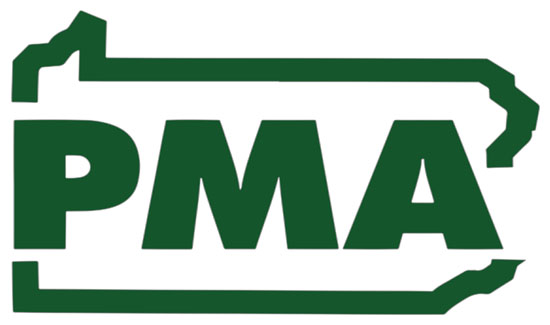PMA, Industry Groups Join Court Fight Against Unconstitutional Carbon Tax

Gov. Tom Wolf’s carbon tax on Pennsylvania energy generation will “irreparably damage” Pennsylvania’s manufacturing, industrial and commercial base, argues an amicus curiae (“friend of the court”) brief filed in Commonwealth Court on June 6 by PMA, and four other industry groups. The new tax, pursued over the objections of the General Assembly, will also result in sharp increases in energy rates for consumers, the groups note.
The brief supports an April legal challenge by power generators, coal producers, and organized labor requesting a preliminary injunction regarding the Commonwealth’s impending membership in a consortium of 11 Northeastern and Mid-Atlantic states called the Regional Greenhouse Gas Initiative (RGGI). Under the scheduled implementation of RGGI, power plants are set to begin reporting their carbon emissions in July.
PMA is joined in the brief by the Industrial Energy Consumers of Pennsylvania (IECPA), the Pennsylvania Energy Consumer Alliance (PECA), the Pennsylvania Chamber of Business and Industry, and the National Federation of Independent Business.
“Under our constitution, the power of taxation is vested solely in the General Assembly,” said PMA President & CEO David N. Taylor. “Governor Wolf’s RGGI scheme is not an administrative ‘fee’ to cover the program’s operating expenses but rather an unconstitutional tax to create a slush fund for Wolf’s pet projects. The RGGI electricity tax is unconstitutional, therefore the RGGI program should not go into effect.”
Under RGGI, power plants must purchase an allowance for each ton of carbon dioxide they emit. In the most recent allowance auction, the price was $13.90 per ton, far higher than the $3.57 a ton earlier predicted by Wolf’s Department of Environmental Protection (DEP), the lead agency behind the plan.
Wolf, who pursued RGGI membership not only over the objections of state lawmakers but three of his own advisory boards, has no authority to enact the tax, the brief contends. And by all measures it is a tax, not the less noxious label of “fee” the administration has hectored.
The brief: “A license fee is distinguishable from a tax which is a revenue producing measure characterized by the production of a high proportion of income relative to the costs of collection and supervision. Thus, if a license fee collects more than an amount commensurate with the expense of administering the license, it would become a tax revenue and cease to be a valid license fee.”
The estimated revenues are light years beyond the cost of administration of the program. The money raised in the first year will be close to $800 million. DEP’s own estimated cost of administration? Six percent of the auction proceeds will be needed “for any programmatic costs related to administration and oversight of the CO₂ Budget Trading Program (5% for the Department and 1% for RGGI, Inc.).”
The Department currently has no plans in place for how to spend the rest of the money.
RGGI membership for Pennsylvania proposes an immense shift in the balance of governmental power. The General Assembly is the only body given the power by the state constitution to enact taxes The RGGI tax would open the door to additional taxes imposed over the will of the General Assembly.
“If DEP can tax the operators of fossil fuel-fired power plants that emit CO₂ into the atmosphere, then presumably DEP can tax the operators of gasoline-powered cars or lawn mowers, diesel-powered trucks, tractors or locomotives, jet airplanes or even a backyard charcoal grill,” the brief states.
Consumers will bear the increased costs of energy generation – estimates of increased electricity costs run as high as 30 percent.
Industry will have to unfairly absorb the higher costs “…because many of IECPA’s and PECA’s large industrial users are ‘trade-exposed,’” the brief states, “they cannot pass increased electricity costs on to their customers without risking the loss of those customers to foreign competitors not burdened by a carbon tax.”
And IECPA puts those costs at $870 million more per year, an annual increase in spending for a large manufacturer of $2.7 million more per year, which would destroy an estimated 30 manufacturing and 160 supporting jobs.
These “additional costs will drive manufacturing out of Pennsylvania and make it exceedingly difficult to bring new firms in, essentially making RGGI a hard cap on economic growth in the manufacturing sector,” PMA noted in earlier comments submitted to the Independent Regulatory Review Commission. “We lose the jobs, we lose the power, and we all pay more for no environmental benefit.”
Any delay in RGGI implementation will improve the odds of finally killing off the unconstitutional electricity tax. Tom Wolf’s eight-year reign over Pennsylvania ends in January. The next governor could single-handedly block the plan from moving forward just as Wolf imposed it.






